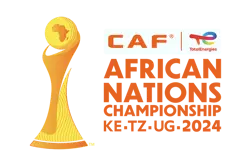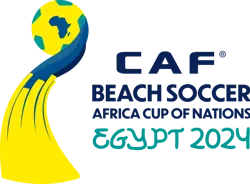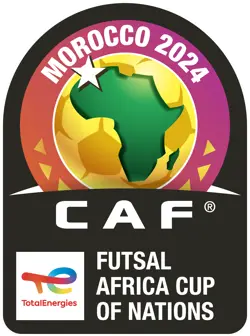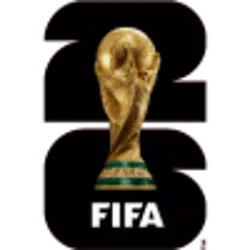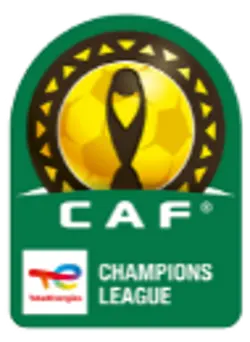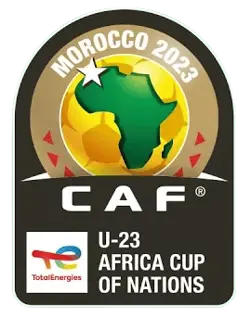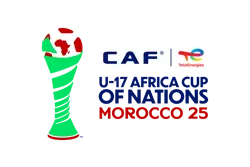Laetitia Dembo and Gaëlle Moudio, pioneers of women's commentaries
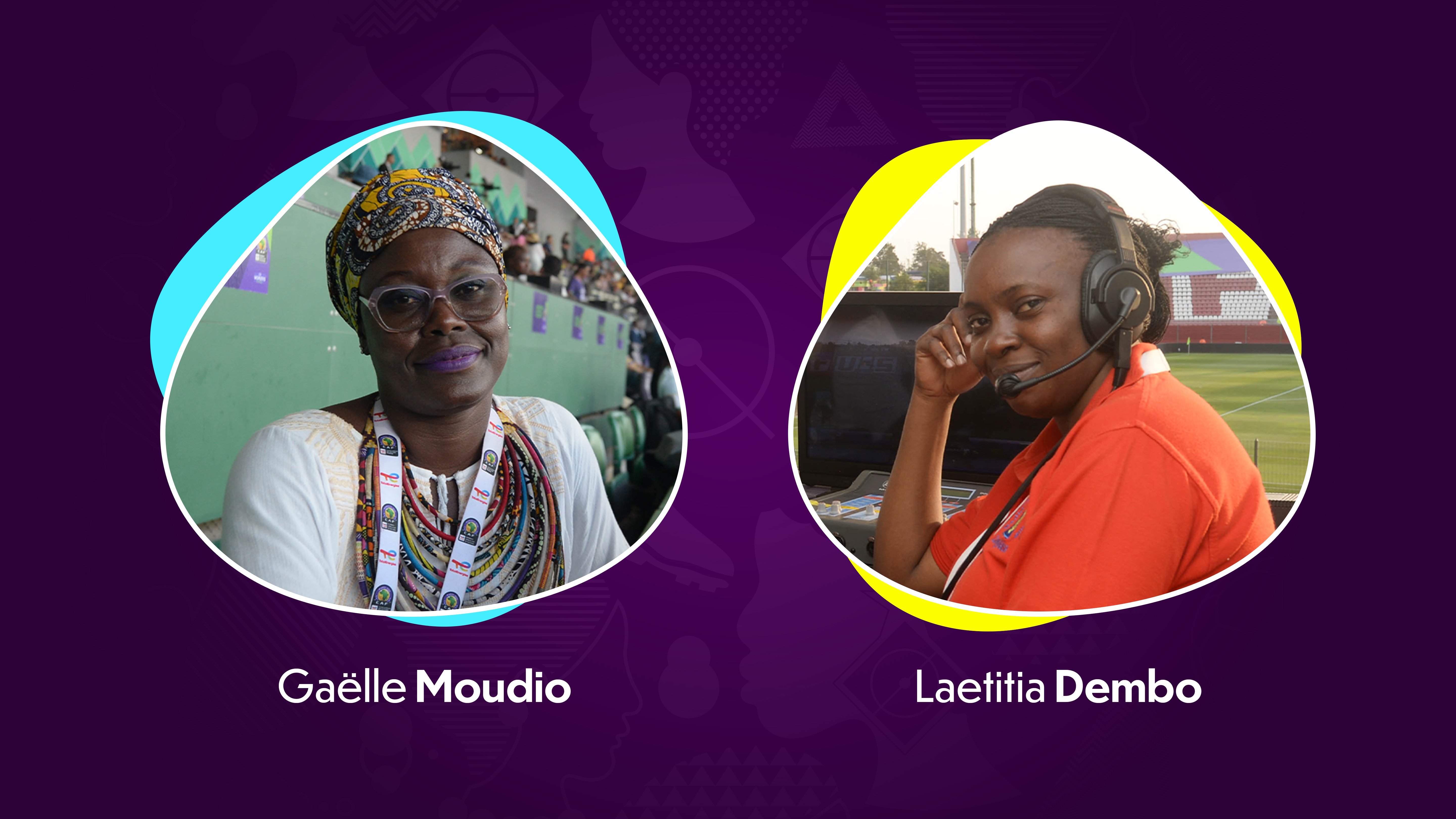
- For the first time, women have commentated on a Women’s Africa Cup of Nations: a historic breakthrough led by two passionate voices.
- Gaëlle Moudio and Laetitia Dembo share their experience of being immersed in a competition full of emotion and symbolism
- Between rigorous preparation, daily challenges, and serving as inspiration for young girls, they represent the next generation in a profession still largely dominated by men
When they took the microphone in Morocco to comment on the TotalEnergies Women's Africa Cup of Nations, Laetitia Dembo and Gaëlle Moudio not only lent their voices to the matches: they opened a breach in a world still largely dominated by men.
It was a historic first – and a mission of great symbolic significance. As soon as they arrived, the tone was set: a warm welcome from CAF, ceremonies magnifying the place of women, and a popular fervour that proved that women's football is now a real spectacle.
For these two commentators, this adventure was not a simple professional challenge. It was a commitment. With rigor, passion and determination, they prepared like athletes: training, research, voice work, collecting anecdotes. All this to leave nothing to chance and to embody a legitimacy that is too often questioned.
But beyond the technique, their presence also has an educational and inspiring value: to show that a woman can talk football with authority, emotion and expertise. In Moroccan stadiums, as well as in African homes, their words resonated far beyond the pitch. Because from now on, the voice of African football is also female.
What were your first impressions when you arrived in Morocco to cover the Women's AFCON?
Laetitia Dembo: When I arrived in Morocco, I was very impressed by the organisation and the reception of CAF. It was my first experience to comment on such an event, all the more striking as women were commentating on the women's AFCON for the first time. The launch ceremony showed the importance given to women in this competition. The atmosphere in the stadiums and the interest of the public were also very strong.
Gaëlle Moudio: I was very excited and proud to be chosen to comment on this AFCON. After having already commentated in 2016, living this continental experience in 2022 was a dream. CAF really put us in the spotlight, and our mission went beyond the image: to bring an authentic and expert perspective.
Dembo: Seeing women commenting confidently inspires young girls to believe that they can succeed in sport, whether it's on the field, in the media or elsewhere. I also appreciated Morocco's effort to make this AFCON a real popular celebration with full stadiums and an electric atmosphere, proof that women's football has found its place.
How did you prepare for this mission as a commentator at the Women's AFCON?
Moudio: I already had experience, having commentated on the AFCON in Cameroon and matches of the Indomitable Lions. The day CAF called me, I was commentating on a match at the stadium, so it was unexpected but natural.
I took it very seriously: I consulted my colleagues, did a lot of research on the teams and players, because as a woman, you have to prove your legitimacy. My Cameroonian colleagues were very supportive and helped me to prepare well.
Dembo: For me, it was a first with CAF, and the preparation was discreet before the official announcement. I had already commentated matches on national television, but there is still a lack of consistency for women in French-speaking Africa.
I redoubled my efforts: watching a lot of football and even playing the video game with my son to see other aspects of the game (laughs). A training course in Gabon, the Sambas Professionals, with experts like Aboubacry Ba also helped me a lot, as did a notebook that I keep preciously.
Moudio: I also collaborated with Martin Camus and Canal+ on a training course in Yaoundé before the CHAN 2020. On site, before the competition, we worked as a team with the other commentators, doing voice exercises to prepare ourselves well. It was a real collective work in a great dynamic
How do you find the balance between technique, emotion and pedagogy in your comments?
Moudio: It is above all a question of management. You can prepare a match in advance, but once on the pitch, the reality can be quite different. It is therefore necessary to be mature in mind, and to have a solid base of knowledge.
Finding the balance between technique, pedagogy and emotion requires real adaptation. Emotion, in fact, can sometimes be difficult to express, especially as a woman, because the looks are often more critical. I remember very well the day when, as I was sitting in my seat to comment on a match, a technician came to me and said: "Madam, you have to get up, this place is reserved for commentators." He just didn't expect a woman to sit there.
I calmly replied, "I'm the commentator today." He looked at me for a moment, then he said "excuse me, ma'am" and he left. This kind of situation shows that our presence is not yet perceived as a matter of course. This can make it more difficult to express emotions.
But once the technique is well worked, once you master your subject and you have prepared the information about the teams, you can really free yourself. If you have your "biscuits", as they say — your data, your anecdotes, your landmarks — and you've overcome the stress of live broadcasting, then you can give way to emotion.
Because football is above all a game of emotions. You have to know how to live them and transmit them to the public, while continuing to deliver clear, useful and well-paced information. Our role is of course to inform, but also to bring the match to life, to make it felt.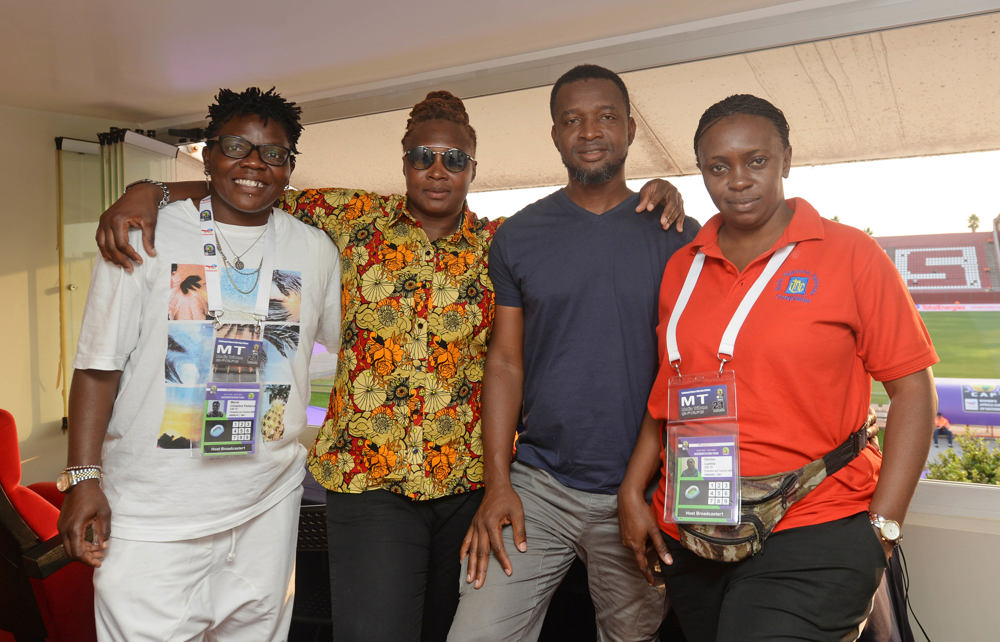
Dembo: You can prepare a match in advance, but the reality once on the pitch is often quite different. It is therefore necessary to show maturity of mind, and above all to have solid knowledge to adapt to what is happening live.
I'm thinking in particular of Duane Dell'Oca and Benjamin Graham, who already had some experience in commentating matches and tournaments. We also benefited from this experience collectively in each match preparation.
There is technique, pedagogy, but also — and above all — emotion. And this is where management becomes essential: knowing how to channel emotion, manage the unexpected, while remaining professional. It is this mixture that makes the commentary lively and credible.
How has this experience enriched your professional career?
Moudio: This experience has totally liberated me and brought unexpected visibility. Back home, the welcome was incredible, with a lot of recognition that empowers. I am now known as "Gaëlle, the CAF commentator", which forces me to always be ready and professional.
The Federation has also given me more respect and responsibility, a real step for women in this often-male environment. CAF has valued our place in sports commentary, and I hope that this will be sustainable to inspire other women, like many young Cameroonian girls who started thanks to me.
I even had the chance to talk in the United States about the model of women's football and my experience through this women's AFCON.
Dembo: This experience has transformed my professional recognition. Even though the DRC was not qualified, CAF highlighted my presence, which strengthened my credibility. I was invited on several TV shows, in particular to comment on the opening ceremony of the Games of La Francophonie on TV5 Monde, with good feedback.
CAF even called us "legends", which changed the perception around us and boosted our visibility. I have received messages of support from many countries, which pushes me to go even further.
How did you organize yourself with the consultants - Hafia Guedri, Amanda Dlamini, Rachael Ayegba and Christine Manie during the matches?
Dembo: In this professional scheme, the journalist comments on the sidelines: he presents the context, talks about the nation, the players, the history, everything that surrounds the match. But it is up to the consultant, who has already been a player, to bring the technical aspect of the game.
For example, with Christine Manie, we commentated a few matches together. I often told him: "You were the one who once sang the national anthem on a field. Tell us how you feel. As a journalist, I can't describe it like you.”
So, naturally, when there was an action, I launched the analysis, and they (the consultants) followed up with their expertise. That's how it should work today. Moreover, in the big international channels, there is always a journalist/consultant duo, and that's what makes the comments richer.
The consultant explains what he has experienced in the field, and the journalist informs and contextualizes. That's the model we followed, and for me, it worked very well.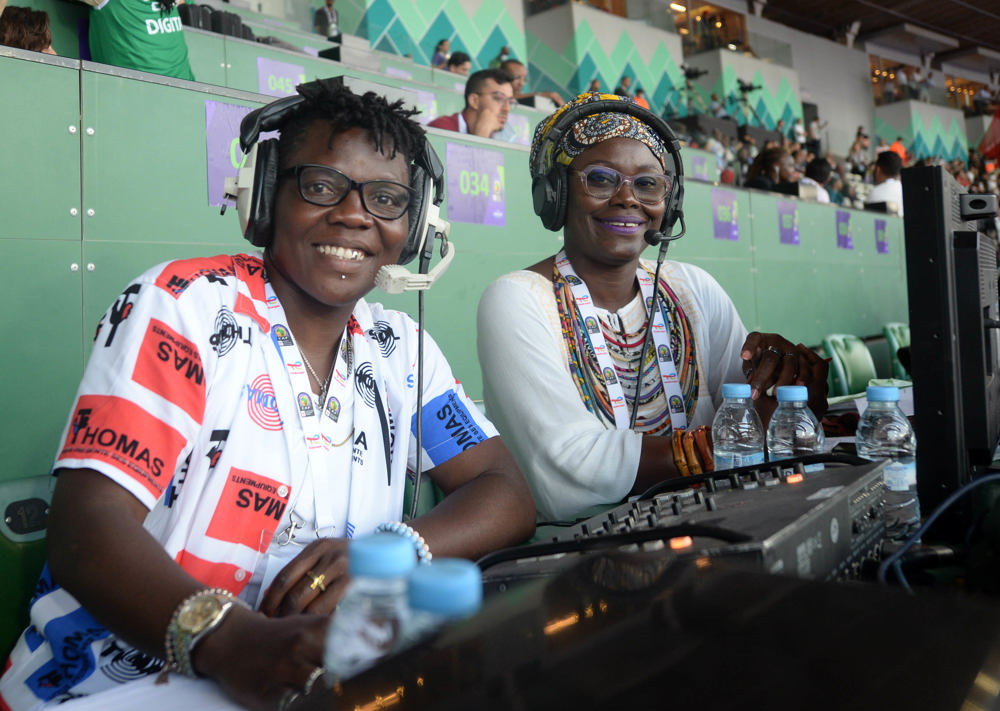
Moudio: Yes, absolutely. The distribution was quite natural, I would say. As I was already used to the microphone and commentating on matches, I focused more on building the confidence of the consultants.
Some of them, even if they had been excellent players, were paralyzed at the idea of speaking live. They didn't really know how to tell their experience, or how to intervene without getting in the way. So my role was to explain to them that the microphone is not a trap, that they had their place and that no one would come and encroach on their space.
I told them: "You are the one who owns the game, you have experienced this from the inside. Express yourself!”
Do you see an evolution in the way women commentators are viewed?
Gaëlle Moudio: Yes, definitely! I'll say it right away: things are improving. At the beginning, we heard a lot of negative comments, it wasn't easy. But after an experience like that, when I came back, I received only positive feedback.
Really only good feedback, which was not at all the case during my first experience here in Cameroon. So yes, there is room for women, and I think we need to give them more games to commentate, more opportunities. And besides, today in Cameroon, there are many more women doing sports commentary than three years ago.
Dembo: I would say that the evolution does not only concern women journalists. It is also a real opportunity for former players to retrain. Many didn't know what to do after their career. But today, with the commentary, whether for journalists or for former players, we see that there is a possible way. With time, experience, and even our voice, we can continue to bring something to football. It's a great way to stay in this environment, and frankly, this dynamic around female commentators, it has to continue!
If you could talk to the 15-year-old Gaëlle or Laetitia, who already dreamed of a career in football, what would you say to her today?
Moudio: I would tell him to persevere. You have to hang in there, really. There will always be negative comments, people who will continue to think that football is not for women. But this is not true. Football is also for women, and the proof is that we have found our place in it.
You have to train, not wait for opportunities to fall from the sky. You have to go and get information, fight, learn. And one day, the time will come. Honestly, I would never have imagined that CAF would call me to comment on matches. But I've always loved football, I've remained faithful to this passion... And when the day came, the opportunity found me.
And I believe that this path is possible for many other young girls. You just have to believe in it and persevere.
Dembo: I would say that you always have to give the best of yourself. That's what we did at CAF: each match was approached as if it were the first or the last of our career. We gave it our all.
To the 15-year-old Laetitia, I would also say: "You never arrived. You're still learning. Every day is a new lesson. Even when you think you've taken a step — for example, that you've been called to CAF — it's not an end in itself. Each match is different, each mission has its realities. You always have to improve, keep learning, and stay humble in the process.
Because it's not just about getting there, it's about continuing to do things right at every new opportunity.

